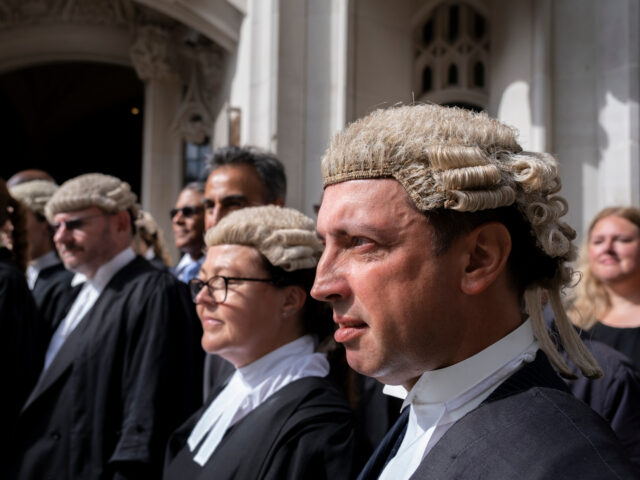Courts in England are reportedly looking to scrap the requirement for barristers to wear traditional wigs amid claims that they discriminate against lawyers with “Afro-Caribbean hair”.
The iconic manner of dress in English courtrooms may become wokism’s latest scalp as demands have been made to abandon the requirement of barristers to wear wigs in front of the court because they are “culturally insensitive”, The Telegraph reports.
A common practice dating back to at least 1685, the wearing of wigs came under scrutiny following an incident in 2022 when Michael Etienne, a black barrister with a large afro hairstyle, claimed that he faced being in contempt of court if he refused to wear a wig while claiming that the demand represented a form of “hair discrimination”.
While wigs are still required in the crown court, the Court of Appeal, and the High Court, the requirement was ended in 2007 for family, civil and Supreme Court cases in 2007.
Arguing in favour of scrapping the tradition entirely, mixed-race barrister Rachel Bale said that wigs are “not fit for purpose” for people with some black hairstyles.
“Something overlooked often in black culture is that your hair is so inexplicably important and it is completely interwoven with your identity,” she claimed.
Prominent barrister Leslie Thomas KC, also of African descent, has described the wigs as a “ridiculous costume” which allegedly represents the “culturally insensitive climate” in the British judicial system.
“The wigs certainly should go. There isn’t any place in a modern society for barristers to be wearing 17th-century fashion,” he said this week, adding that other “archaic” dress code items should also be scrapped, including bands, collarettes, and wing collars.
A spokesman for the Bar Council said: “Following questions from barristers about wigs and hair discrimination, the Bar Council set up a working group to consider court dress in the context of all protected characteristics.
“The findings of the working group are currently being discussed with the judiciary as part of our regular dialogue on equality and diversity matters.”

COMMENTS
Please let us know if you're having issues with commenting.